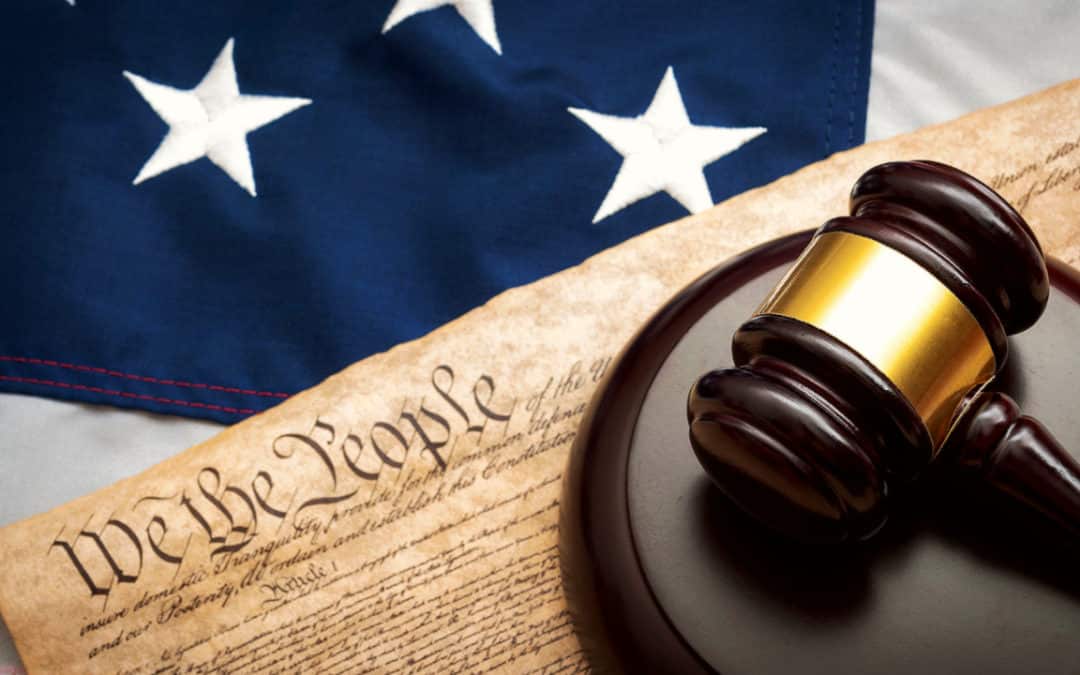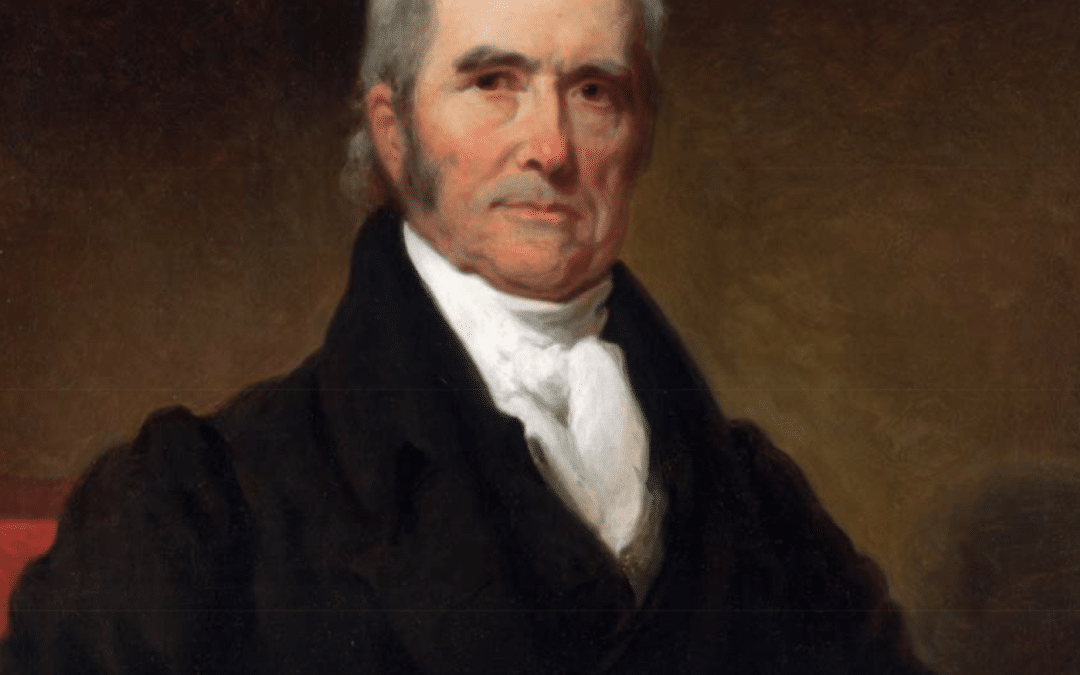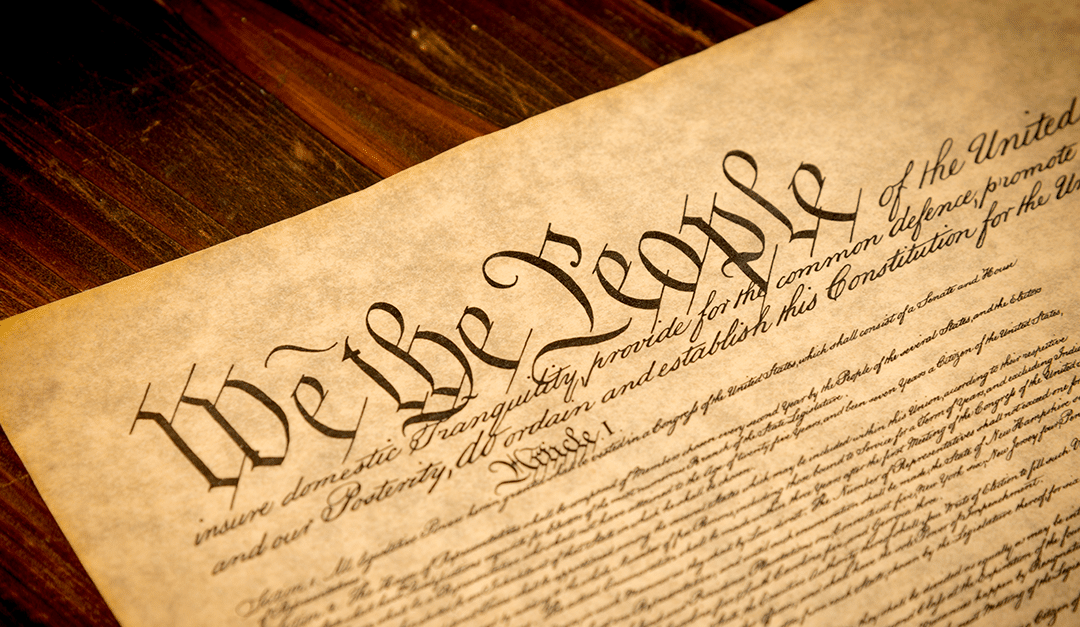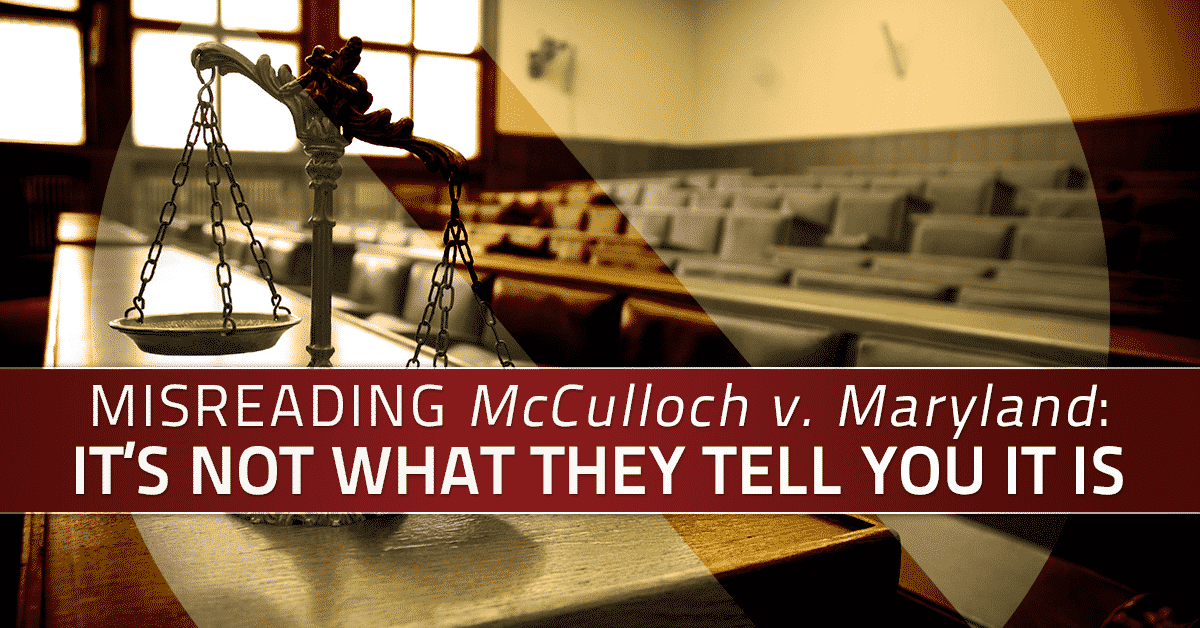


Why McCulloch v. Maryland – now 200 years old – is not a “big government” manifesto
This year marks the 200th anniversary of the Supreme Court’s ruling in McCulloch v. Maryland. In that case, Chief Justice John Marshall upheld Congress’s power to charter a national bank—a distant forerunner of the modern Federal Reserve System. Nearly all...
On the Omission of the Term “Expressly” from the Tenth Amendment
In his recent review of Lawrence Lessig’s new book, “Fidelity and Constraint,” Georgetown law professor John Mikhail takes issue with Lessig’s account of the New Deal. Mikhail rejects Lessig’s implied suggestion that the New Deal Court departed from the original...
